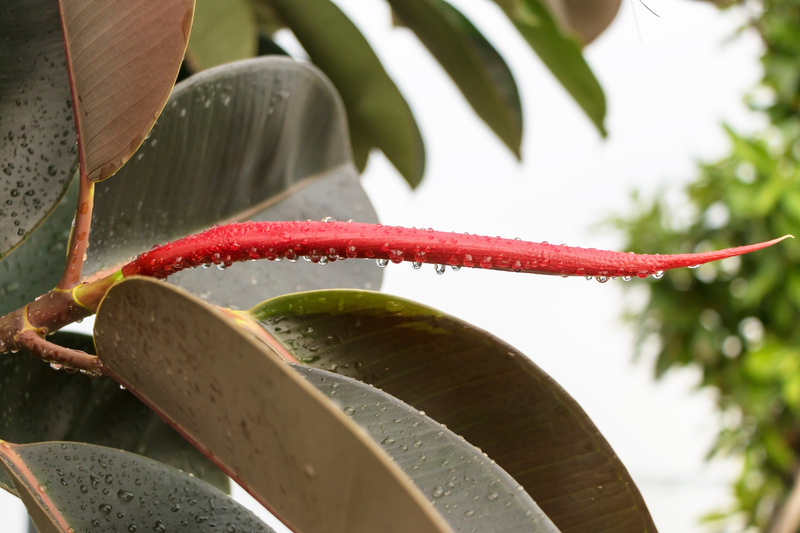Easy Garden Tasks for Youngsters
Posted on 17/11/2024
Gardening can be both relaxing and educational for children. It offers youngsters an opportunity to learn about nature, responsibility, and the lifecycle of plants. While some gardening tasks might be complex, there are many simple activities that kids can handle. Encouraging children to participate in gardening can instill a lifelong love for nature and eco-friendly habits.
1. Planting Seeds
One of the simplest and most gratifying tasks is planting seeds. Children can choose from a variety of plants such as sunflowers, marigolds, or even vegetables like peas and beans. Equip them with a small trowel and show them how to plant the seeds at the right depth. Watering the newly planted seeds every day can teach them about consistent care.

2. Watering Plants
Children often find watering plants to be fun and enjoyable. Provide them with a lightweight watering can or a gentle hose attachment specifically designed for kids. This task helps them understand the importance of hydration for living organisms, fostering a sense of responsibility and regularity.
3. Weeding
Weeding can be made easy and safe for children when done with the right tools. Provide them with a small, child-friendly weeding tool and gloves. Show them how to identify common weeds and remove them from the garden efficiently. This task not only keeps the garden neat but also teaches kids about plant competition and garden maintenance.
4. Harvesting
Harvesting fruits, vegetables, or herbs is a rewarding task for children. It's exciting for them to see the fruits of their labor and enjoy fresh produce. Tasks here can include picking ripe tomatoes, strawberries, or cutting herbs like basil and mint. This activity connects them to the food they eat and promotes healthy eating habits.
5. Adding Mulch
Mulching is another simple task that can be educational for kids. They can learn how mulch helps retain soil moisture, suppress weeds, and improve soil health. Provide them with a small bucket and gloves, and let them spread mulch around the plants. This activity builds an understanding of soil care and its importance in plant growth.
6. Decorating the Garden
Let the creativity of youngsters flourish by assigning them the task of decorating the garden. They can paint plant pots, make garden signs, or even craft small scarecrows. This activity not only makes the garden visually appealing but also enhances their artistic skills and sense of ownership of the garden space.
7. Composting
Introduce composting by setting up a small compost bin. Teach children what can be composted and the process of turning organic waste into nutrient-rich soil. They can help by adding kitchen scraps, turning the compost, and using the finished compost in the garden. This task highlights the importance of recycling and sustainability.
8. Observing Wildlife
Encourage youngsters to observe the wildlife that visits the garden. They can make bird feeders, hang them up, and note the different species that come by. Identifying insects, butterflies, and other garden visitors fosters a sense of curiosity and respect for nature.
Pros and Cons
Pros:
- Teaches responsibility and consistency.
- Increases connection with nature.
- Promotes physical activity and outdoor time.
- Enhances understanding of plant biology and ecosystems.
- Encourages healthy eating through homegrown produce.
Cons:
- Requires supervision to ensure safety.
- Can be time-consuming for busy parents.
- Young children might lose interest quickly.
- Risk of exposure to chemicals or harmful plants (use organic and child-safe methods).
Tips
- Start with easy and fast-growing plants to maintain interest.
- Create a kid-friendly garden area with small tools and gloves.
- Set short and achievable tasks to keep them engaged.
- Use organic methods to minimize exposure to chemicals.
- Make gardening a family activity to build teamwork and bonding.

Takeaways
- Gardening is an effective way to teach youngsters about nature.
- Simple tasks can be both fun and educational for kids.
- With proper guidance and child-friendly tools, children can successfully contribute to garden maintenance.
- Despite some risks, the benefits of gardening with kids far outweigh the cons.
Conclusion
Engaging youngsters in gardening can be a highly rewarding experience for both parents and children. By starting with easy and manageable tasks, children can develop a love for nature and an understanding of the environment. With the pros far outweighing the cons, gardening is an excellent way to teach responsibility, patience, and the joys of nurturing life. Whether through planting seeds, watering, or observing wildlife, children can find a sense of accomplishment and joy in the garden, making it a valuable addition to their upbringing.












